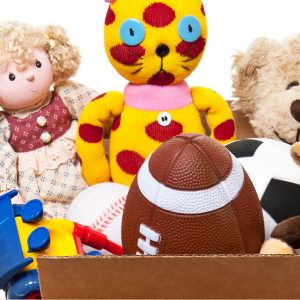Description
Service background
Scope of application: Applies to articles designed, produced or sold for play by children under 14 years of age.
ASTM F963 American toy testing standard is a North American country, ASTM F963 is formulated according to the mandatory requirements of the United States federal regulations, generally speaking, the content of the standard fully includes the relevant technical requirements of CPSC 16CFR, manufacturers can ensure that the product meets the requirements of ASTM F963. It basically meets the relevant technical requirements of CPSC 16 CFR, but in order to ensure that the product meets the requirements of CPSC 16 CFR, toy manufacturers should also pay timely attention to the requirements of CPSC 16 CFR and its changes while ensuring that the product meets the requirements of ASTM F 963, to ensure that the product meets the requirements of the United States law.
The main technical requirements of ASTM F963 include mechanical and physical safety, combustion performance, chemical toxicity, electrical safety, and microbiological safety.
Service content:
Test product
Plush toys, plastic toys, wood toys, electric toys, intelligent toys, riding toys, inflatable toys, magnet toys, experimental toys, Musical Instruments and other toys.
Test project overview
ASTM F963-17 Physical and Mechanical Tests of Mechanical and Physical Properties
ASTM F963-17 Flammability (Appendices A5 & A6)
ASTM F963-17 Migration of Specific Elements Soluble Metals (8E)
Test item refinement
1) Mechanical and physical properties
4.1 Material quality
4.4 Electrical/Thermal energy
4.5 Sound Toys
4.6 Small Objects
4.7 Touchable edges
4.8 Highlights
4.9 Touchable sharp points
4.10 Wires and rods
4.11 Nails and fasteners
4.12 Plastic film
4.13 Folding mechanism and hinge
4.14 Ropes, straps and elastic
4.15 Stability and overload requirements
4.16 Confined space
4.17 Wheels, tyres and axles
4.18 Holes, clearances and accessibility of mechanical devices
4.19 Simulated protection devices
4.20 Comfort pacifier
4.21 Ejection toy
4.22 Teething and teething toys
4.23 Ring the bell
4.24 Squeeze the toy
4.25 Electric toys
4.26 Toys placed on cribs or playpens
4.27 Stuffed and beanbag type toys
4.28 Strollers and carriage toys
4.29 Art materials
4.30 Toy gun marking
4.31 Balloons
4.32 Some toys have almost spherical ends
4.33 Elastic ball
4.34 balls
4.35 Pom pom toys
4.36 Hemispherical objects
4.37 Yoyo elastic rope toy
4.38 Magnet
4.39 Handle and steering grip
4.40 Expansion material
4.41 Toy box
5 Label requirements
6 Specification Materials
7 Manufacturer’s mark
8.1 General Requirements
8.3 Relates to toys, toy parts and materials
8.4 Cleaning and anti-corrosion effect test
8.5 Normal Usage Test
8.6 Abnormal Tests
8.7 Impact Test
8.8 Removing Components Torque Test
8.9 Tensile test of removing components
8.10 Stress Test
8.11 Test tire removal and assembly and disassembly of the bite axle
8.12 Flexural test
8.14 Projectiles
8.15 Stability test of toys or toy seats
8.16 Pom pom toys
8.17 Battery driven toy motor flameout test
8.18 Test of electric vehicle toys
8.19 Test whether the toy contains secondary batteries or batteries
8.20 Test toys that make noise
8.21 Dynamic strength test of wheeled toys
8.22 Thickness of plastic film
8.23 Testing coils and wires
8.24 Test method for yo-yo elastic rope toys
8.25 Magnet test method
8.26 Test methods for locking mechanisms or other devices
8.27 Toy box lid and seal test
8.28 Overload test of toys and toy seats on the car
8.29 Evaluation of filler materials
8.30 Expansion materials — test methods
9 Appraisal
3). Combustion performance
A5 Flammability test of solid and soft toy materials
A6 Fabric flammability test
4). Migration of specific elements
Transportable arsenic (As)
Migrating chromium (Cr)
Migratory barium (Ba)
Portable selenium (Se)
Portable antimony (Sb)
Portable cadmium (Cd)
Transportable mercury (Hg)
Portable lead (Pb)
Service advantage
Timeliness: RTS has a set of independently developed LIMS system, which monitors and manages the entire test process, greatly improving work efficiency and shortening the inspection cycle entrusted by enterprises.
Convenient: RTS has a perfect order platform and free on-site pick-up service, and can provide one-to-one consultation and training and one-stop product compliance service chain for enterprises.
Price: RTS in the consulting stage can be based on the product information and material situation of the enterprise comprehensive evaluation, to provide the most appropriate and the most economical quotation scheme for the enterprise, greatly reducing the test cost.
Quality: As a national high-tech enterprise, RTS has dozens of patented inventions and supporting instruments and equipment and professionals to meet the needs of different customers and different products.





